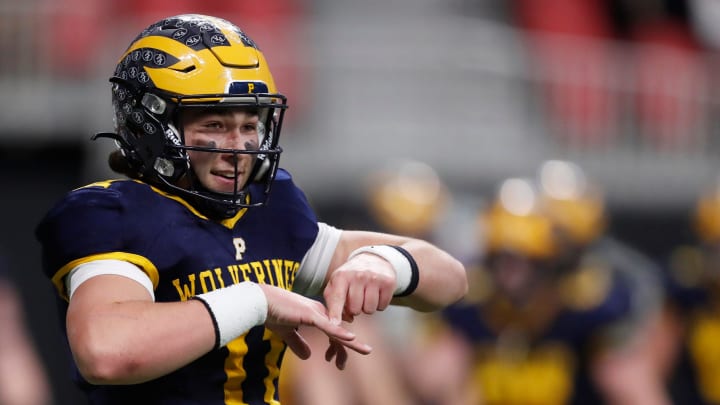GHSA Issues Warning to Athletes: Tread Lightly with NIL Deals

The Georgia High School Association (GHSA) recently cautioned member schools about potential eligibility risks for athletes involved with NIL Club, a platform allowing students to monetize their digital content through fan subscriptions. GHSA executive director Robin Hines emphasized that such activities could jeopardize athletes' eligibility if they involve booster payments, a violation of GHSA policy.
Hines, speaking to The Atlanta Journal-Constitution, stated, "We just don't want athletes to get into trouble by doing something outside of our policy. This will put athlete's eligibility at risk if they follow through." He criticized NIL Club's expansion into high schools, stating, "This has no place in the high school space, none whatsoever. It's a company trying to make a buck."
NIL Club, founded by former football player Mick Assaf, facilitates student earnings through subscriptions for exclusive content, with the platform taking a 15% cut. Despite successful ventures among college athletes, GHSA's regulations strictly limit booster involvement in high school NIL deals. Hines underscored the distinction between high school and college NIL policies, noting GHSA's prohibition on booster-funded collectives benefiting athletes.
GHSA's bylaws define boosters broadly, encompassing various school affiliates and donors. While Georgia permits high school athletes to profit from endorsements, restrictions apply to avoid booster influence like college sports. Hines emphasized that students cannot use school-related intellectual property in their commercial ventures.
Although several Georgia athletes, including notable figures like Julian Lewis, have secured NIL deals, many arrangements remain modest. Hines highlighted community-based deals, such as a local restaurant offering a free meal to a high school quarterback, as typical. Despite early successes, GHSA's recent warnings reflect ongoing efforts to navigate the complexities of NIL in high school sports.
As GHSA continues to monitor and educate on NIL guidelines, Hines anticipates broader discussions on the topic nationally, underscoring its evolving impact on high school athletics.
